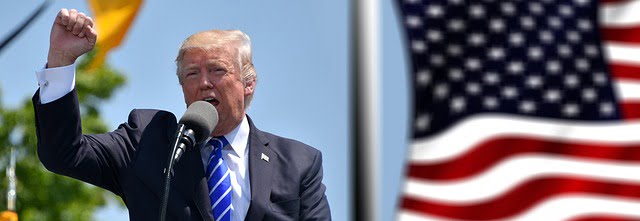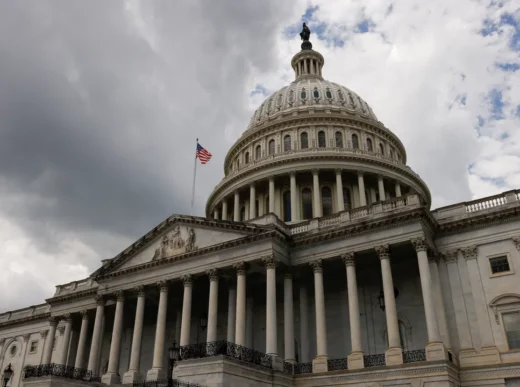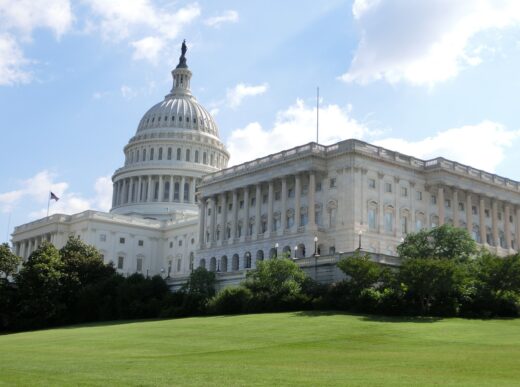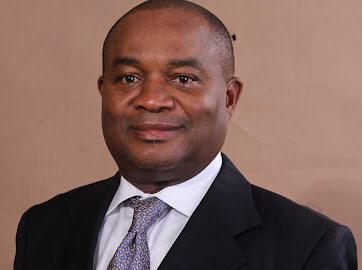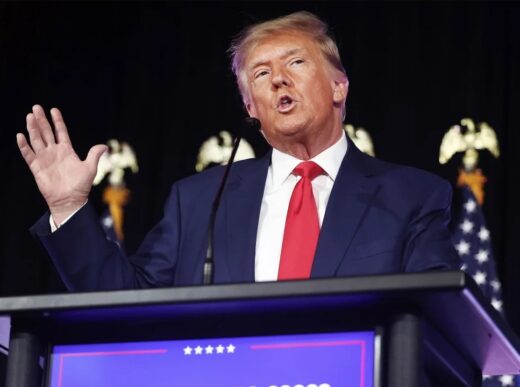Introduction: Donald J. Trump, a real estate magnate and television personality, made a seismic entry into American politics as the 45th President of the United States. From his groundbreaking campaign to his eventful four years in office, Trump’s presidency was characterized by controversy and polarization. This essay will examine the rise of Donald Trump, his policy agenda, and the lasting impact of his presidency on American politics.
Rise to Power: Trump’s journey to the White House began with his unexpected victory in the 2016 presidential election. Running as a political outsider, he capitalized on populist sentiments and a wave of anti-establishment fervor. His promises to renegotiate trade deals, secure the borders, and revitalize the economy resonated with a significant portion of the electorate. Despite facing criticism and skepticism from the political establishment, Trump’s unorthodox campaign strategy and his ability to connect with disaffected voters propelled him to victory.
Policy Agenda: Once in office, Trump set out to fulfill his campaign promises, aiming to reshape American policies across various domains. His administration pursued an America First agenda, which sought to prioritize American interests in international affairs. Key policy areas included tax reform, deregulation, immigration, and trade. Trump’s signature achievement was the Tax Cuts and Jobs Act, which aimed to stimulate economic growth through tax reductions. However, his policy decisions often faced opposition from Democrats and some Republicans, resulting in legislative gridlock and policy uncertainty.
Controversies and Divisive Rhetoric: Throughout his presidency, Trump generated controversy through his unconventional approach to governance and provocative rhetoric. His frequent use of social media, particularly Twitter, allowed him to bypass traditional media channels and directly communicate with his base. However, his unfiltered tweets often fueled controversy and sparked backlash, with critics accusing him of promoting division and undermining democratic norms. Trump’s rhetoric on immigration, trade, and foreign policy further polarized public opinion and strained diplomatic relations with key allies.
Domestic and International Implications: Trump’s presidency had significant domestic and international implications. On the domestic front, his policies and leadership style exposed deep divisions within American society, leading to heightened political polarization. His administration’s immigration policies, such as the travel ban on predominantly Muslim countries and the separation of families at the border, sparked widespread condemnation and legal challenges. Moreover, Trump’s handling of racial tensions and protests further exacerbated societal divisions.
In terms of international relations, Trump pursued an “America First” foreign policy, challenging long-standing alliances and agreements. His decision to withdraw from the Paris Agreement on climate change and the Iran nuclear deal drew criticism from the international community. Additionally, his trade disputes with China and imposition of tariffs strained global economic relations. Trump’s approach to international affairs, marked by unpredictability and an emphasis on bilateral deals, disrupted traditional diplomatic norms and reshaped the global geopolitical landscape.
Conclusion: Donald Trump’s presidency left an indelible mark on American politics. From his unorthodox campaign to his divisive rhetoric and policy decisions, Trump’s tenure was defined by controversy and polarization. Whether admired for his
bold leadership or criticized for his disregard for democratic norms, there is no denying that Donald Trump’s presidency had a profound impact on the United States and the world.
As the 45th President, Trump defied conventional political wisdom and tapped into the frustrations of many Americans who felt left behind by globalization and ignored by the political establishment. His promises to prioritize American interests struck a chord with these voters, propelling him to an unexpected victory in 2016.
Once in office, Trump wasted no time in implementing his policy agenda. His administration championed tax cuts and deregulation, aiming to spur economic growth and job creation. The Tax Cuts and Jobs Act, passed in 2017, significantly reduced corporate and individual tax rates, leading to a boost in business investment. Supporters lauded these measures as necessary steps to stimulate the economy and restore American competitiveness.
However, Trump’s presidency was also marked by controversy and divisiveness. His brash and unfiltered communication style, often expressed through social media, drew both praise and condemnation. Supporters appreciated his direct and unapologetic approach, while critics argued that his inflammatory rhetoric fueled hatred and division. Trump’s remarks on immigration, including referring to some Mexican immigrants as criminals and advocating for a border wall, ignited fierce debates and led to widespread protests.
Furthermore, Trump’s handling of racial tensions and protests, particularly in the aftermath of events like the Charlottesville rally, sparked national outrage. Critics accused him of failing to adequately condemn white supremacists and further stoking racial divisions. These incidents raised questions about the president’s ability to unify the country and uphold democratic values.
Internationally, Trump’s “America First” foreign policy approach disrupted long-standing alliances and multilateral agreements. He questioned the value of NATO and demanded that allies contribute more to defense spending. His decision to withdraw the United States from the Paris Agreement on climate change and the Iran nuclear deal received global criticism and strained diplomatic relations. Trump’s trade policies, characterized by imposing tariffs and engaging in trade disputes, also caused uncertainty and friction in the global economy.
While some praised Trump’s tough stance on trade, arguing that it protected American industries and jobs, others warned of the potential negative consequences, such as higher consumer prices and reduced global cooperation. The unpredictability and transactional nature of Trump’s foreign policy approach challenged traditional diplomatic norms and reshaped the dynamics of international relations.
In conclusion, Donald Trump’s presidency was a time of controversy, policy upheavals, and polarization in American politics. His unorthodox style, policy decisions, and divisive rhetoric left an undeniable impact on domestic and international affairs. Supporters hailed him as a disruptor who prioritized American interests, while critics decried his disregard for democratic norms and exacerbation of societal divisions. Regardless of one’s perspective, Donald Trump’s presidency will be remembered as a transformative chapter in American history, shaping the future trajectory of the nation and its role on the global stage.
